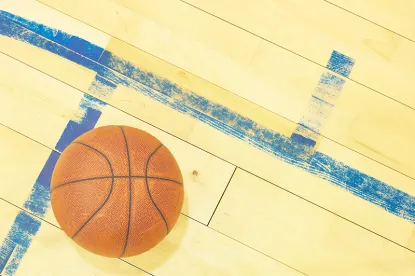Last Thursday marked the NBA trade deadline, meaning teams can no longer trade players on their rosters. However, after the deadline, there remain no restrictions on teams signing free agents. Coincidentally, after the trade deadline, some players and teams enter into buyouts whereby that player is bought out of his current contract and becomes a free agent. This happens where a team is usually unsuccessful in trading a player on a high salary or a player refuses to play for the team for the rest of the season.
The buyout market can make or break a team’s season. This year, the Brooklyn Nets fortified an already stacked roster by signing two all-star free agents whilst the reigning champions, the LA Lakers, signed the league’s leading rebounder. These signings come somewhat at the expense of small market franchises who lose a star player and get nothing in return. One general manager reportedly described the buyout market as “helping the rich get richer.”
What does a buyout involve?
A buyout usually occurs when a player is in the final year of his contract, often a lucrative contract, and the player’s employer must decide whether to continue to pay the player’s salary for the rest of the season (whereby the player becomes a free agent that summer and can join a new team) or to proceed with a quid pro quo in which the team cuts their losses and releases the player from their contract and pays a discounted salary.
But one does not merely buyout an NBA player’s contract
In accordance with the Collective Bargaining Agreement, a player’s base salary becomes guaranteed from 10 January for the remainder of the season. This means that rostered NBA players on 10 January will receive their base salary for that season even if they are waived or dropped by their employer. Therefore, in order for a player to be successfully bought out of their contract (i.e. the team pays them less than their base salary), the parties enter arbitration to agree the buyout amount. Once agreed, the player enters waivers (a sort of two-day “cool off” period) before becoming a free agent.
This year, the buyout market strengthened two of the strongest teams in the NBA. Andre Drummond who was on a max contract with the Cleveland Cavaliers signed with the Lakers for a salary of $794,536 for the remainder of the season. This is peanuts compared to the $28.8M per season he was being paid by the Cavs. The Lakers, therefore, added an all-star calibre player to their roster for cents on the dollar.
Six-time all-star, Blake Griffin, was due $36.8M from the Detroit Pistons this year and agreed to a buyout agreement, which involved Griffin returning $13.3M to the Pistons. Meanwhile, LaMarcus Aldridge was due $24M from the San Antonio Spurs this year but returned $7.25M of this salary to facilitate the buyout. Both players signed with the Brooklyn Nets, receiving salaries of $1,229,676 and $878,340, respectively, for the remainder of the season.
Are big market teams benefiting at the expense of smaller market teams?
Sure, the mechanics of a buyout provide some benefits to the incumbent franchise. The Detroit Pistons, for example, can save money rather than paying the player their full salary. Moving the player from their roster also creates a new roster spot that can be invested in a young player and will generally mean that the Pistons’ young players benefit from more game time and more time on the ball.
However, the overwhelming sentiment appears to be that contending teams are gifted a superstar and said superstar’s previous team receives nothing in return. The Detroit Pistons could have traded Blake Griffin but why would the Nets give away assets and take on Griffin’s huge contract when they can gamble on him being bought out and sign him, as they did, for a discount without giving anything to the Pistons in return? Indeed, another General Manager reportedly believes, “You shouldn’t be adding to your team this deep in a season without giving things up.”
Indeed, the NBA’s Collective Bargaining Agreement does not establish the buyout market and does not create this new system. It has evolved on its own and perhaps now is an appropriate time for the NBA to take control of the market reality. However, the Collective Bargaining Agreement is due to be renegotiated in 2024, which is likely the soonest the matter will be addressed.
The NBA’s previous commissioner, David Stern, placed an emphasis on promoting small market teams during his tenure. Infamously, Stern vetoed Chris Paul’s trade from the New Orleans Hornets (as they were known in 2011) to the Lakers. This was highly unusual but, at the time, the NBA owned a majority stake in the Hornets. The Hornets were a new expansion franchise, entering the league in 2002 and the NBA considered it in the league’s wider interests if it controlled the Hornets. Some speculate that the trade was vetoed because it would have consolidated the Lakers position at the top, at the expense of a small market team like New Orleans.
Indeed, the Brooklyn Nets are arguably the most stacked team in NBA history and have been able to manoeuvre at the expense of smaller market teams.
All of this to beat a 36 year old…




 />i
/>i
